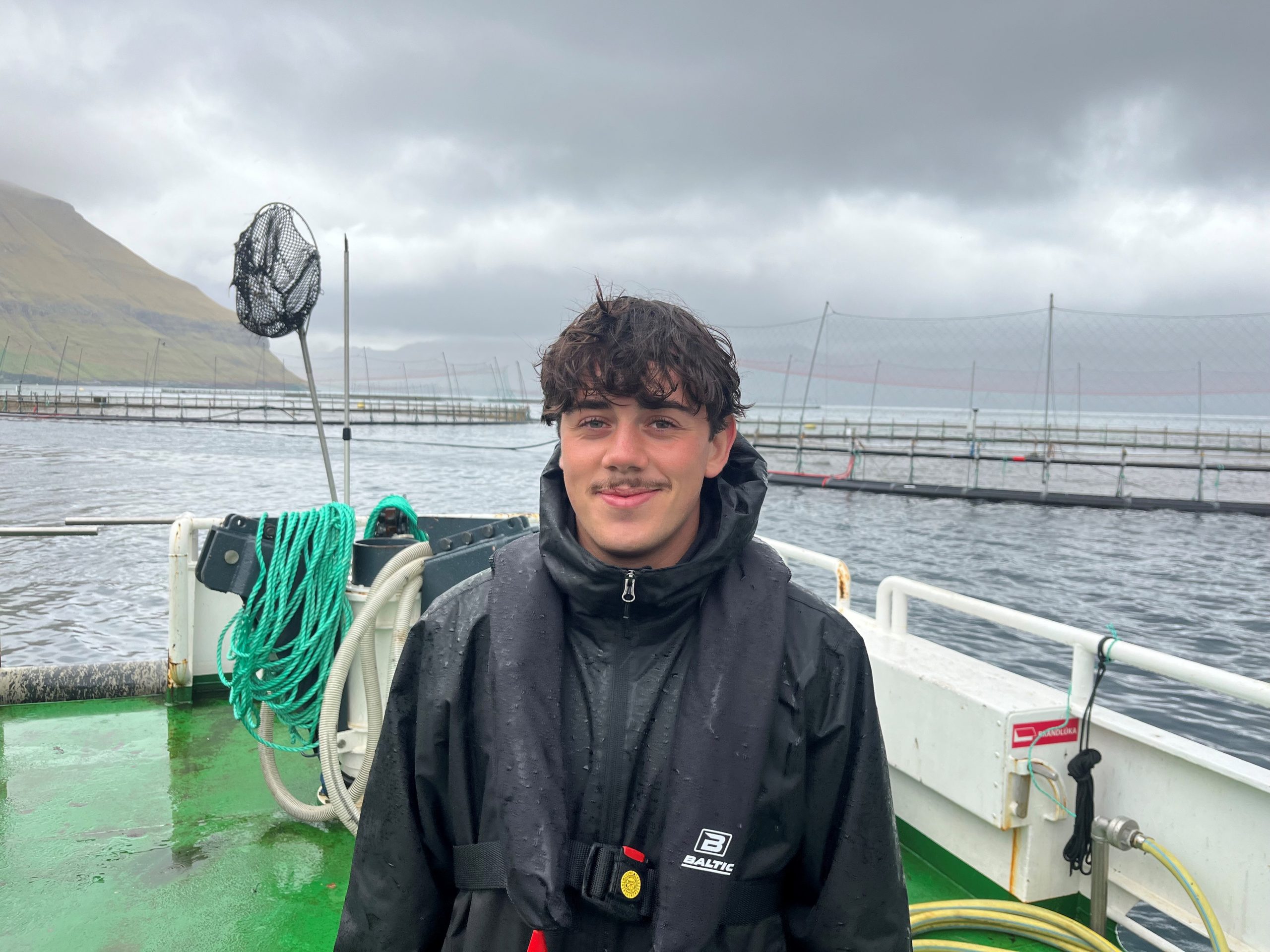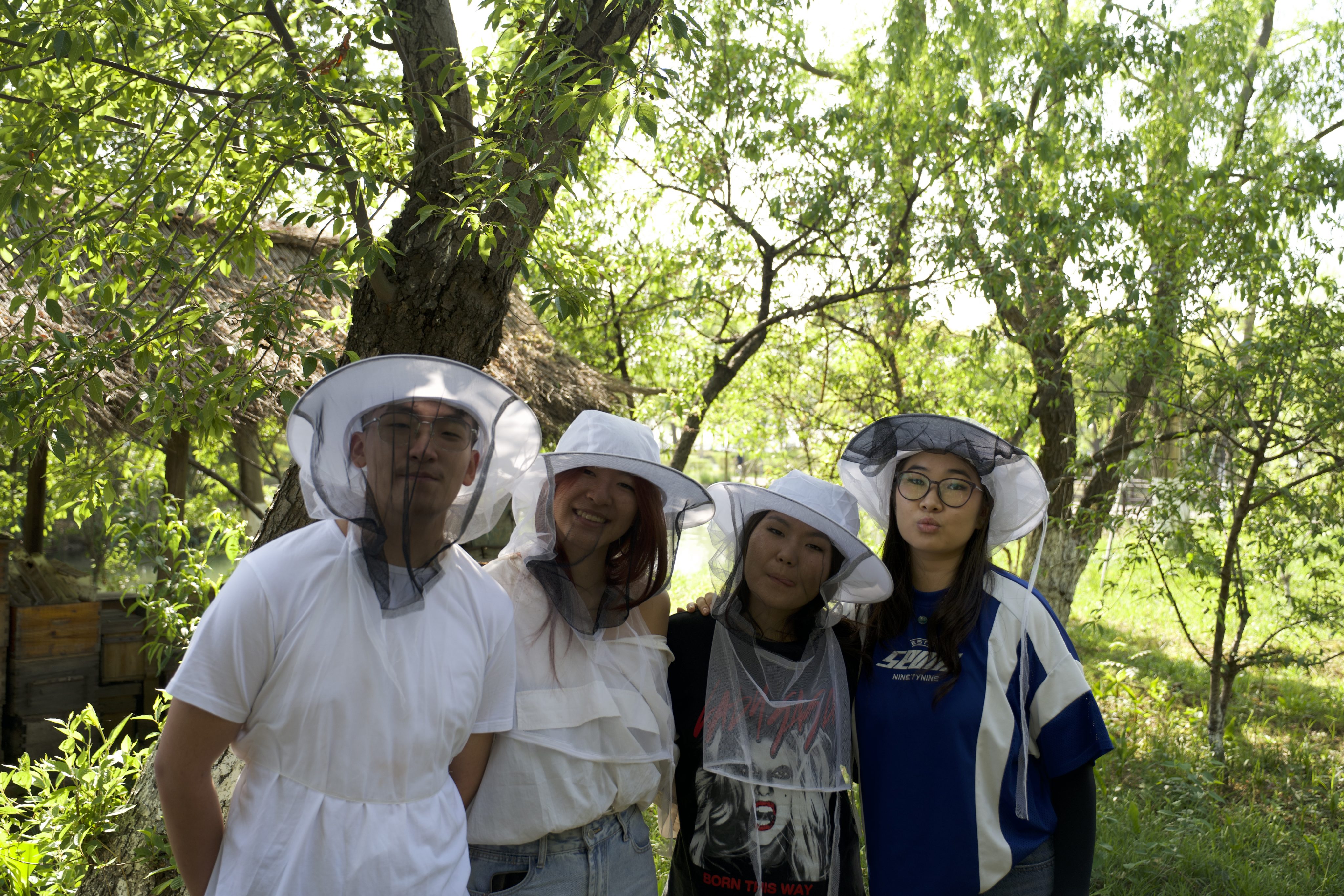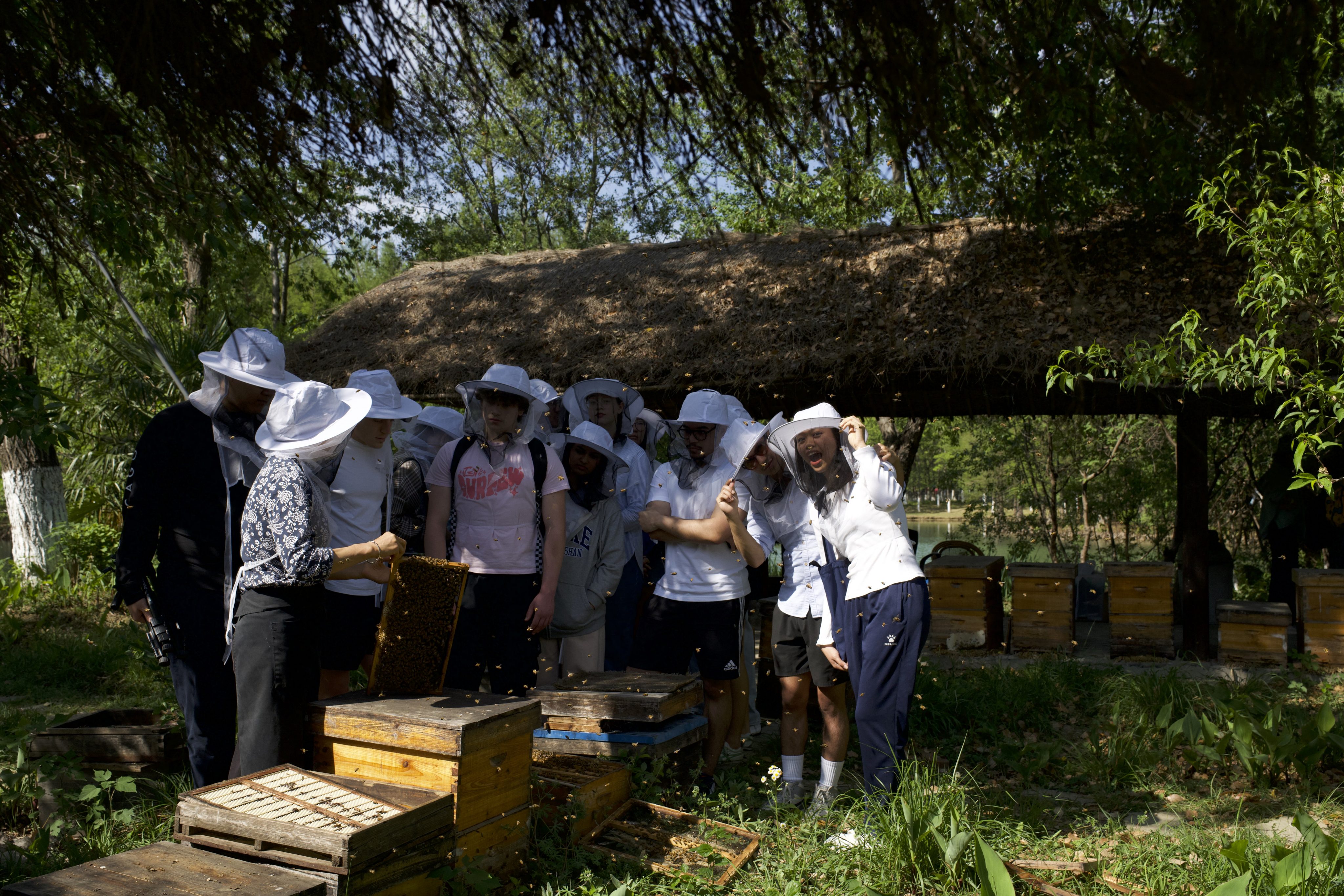Johann Diego Asmus León, Class of 2026, is studying Environmental Science with a Public Policy focus at DKU and Interdisciplinary Studies in Environmental Science and Public Policy at Duke University. Combining his academic interests with a hands-on approach to environmental issues—particularly the urgent challenge of pollinator decline, Johann leads the Hive Minds Community Beekeeping Initiative, a CSCC Community Service project that connects DKU students with local beekeepers in Kunshan and the wider Jiangsu province.

Established in 2023, Hive Minds grew out of Johann’s recognition that bee population decline is not only a global concern but also a local one, with serious implications for agriculture and biodiversity in the Yangtze Delta region. In the conversation below, Johann shares the story behind Hive Minds, reflects on his experiences collaborating with both students and community members, and discusses how he hopes the project will inspire a lasting culture of environmental stewardship at DKU and beyond.
Hi Johann, thanks for speaking with us. To start, could you share what inspired you to start the Hive Minds Community Beekeeping Initiative, and how you went about building partnerships with local beekeepers?
I first visited the Yuecheng Organic Farm during my freshman year on a field trip led by my now friends and mentors, Prof. Kaley Clements and Jiawen Cai. At the time, I was craving a deeper connection to the local ecosystem. Living in such a rapidly urbanizing environment, I sometimes felt distant from nature.
When I noticed the farm’s beehives, I was instantly fascinated. I began reading about the crucial role pollinators play in local ecosystems, and the alarming threats they face. The more I learned, the more I felt compelled to take action. I started visiting the farm regularly, organizing student trips through my campus club and my leadership roles in residence life.
Over time, my enthusiasm became obvious to the beekeepers. Slowly, through consistent visits and genuine curiosity, I built a personal relationship with them—especially with Aping, the beekeeper I work most closely with. That trust has been the foundation for everything we’ve built together.
On the farm visits, was there a moment from one of the farm visits that stood out to you or particularly deepened your understanding of beekeeping or local environmental issues?

Yes—meeting the local honeybee, Apis cerana, for the first time. At the farm, they keep a ratio of roughly 1:10 between Apis cerana and the non-native European honeybee, Apis mellifera. I was struck by their differences—not just in appearance, but in their behavior and ecological role.
What surprised me was how little attention the native bee seemed to get, especially in a country that is usually quite proud of its native species. It made me reflect on how market forces and productivity concerns can sometimes overshadow ecological priorities, even in well-intentioned agricultural settings.
The honey-tasting event last spring was a big hit— how did that idea come about, and what kind of feedback did you receive? We are really curious to hear more about it.
Whenever we take students to the hives, we taste honey straight from the comb. Every single time, there is student saying it’s the first time they’ve ever tasted raw honey. Watching their eyes light up – seeing that surprise and joy – is amazing.
That experience made me want to share it with the wider DKU community. The honey-tasting event became not only a way for people to enjoy this “liquid gold,” but also an opportunity to support our local beekeepers economically.
The feedback was overwhelmingly positive. People loved the honey, but more importantly, they learned about the environmental benefits of consuming local, minimally processed food. For our beekeepers, it meant direct support for their livelihoods, which in turn supports the health of the local bee populations. It was a win-win-win: good for the community, good for the beekeepers, and good for the environment. Love that.
Organizing regular trips and events must come with challenges. From coordinating with local beekeepers to managing student participation and handling logistics like transportation or translation, I am sure there have been some challenges along the way. What have been the biggest hurdles you have faced, and how have you worked through them?

The most consistent challenge is the language and cultural barrier. I would love to be able to communicate more fluently with Aping about long-term collaboration, which is why I’ve committed to taking Chinese classes again in my senior year.
We also work within a triangular partnership involving the farm, Aping, and the Fairmont Hotel, which partly employs her. Navigating those relationships requires patience and cultural sensitivity.
That said, I view these challenges as opportunities. I genuinely believe in putting energy toward what you love – once you do, the work becomes a natural extension of your passion and will be a success by default, promised. The positive feedback and shared sense of purpose keep me going.
We imagine that spending time with local beekeepers must give you a unique perspective, not just on beekeeping itself but also on the local environment, traditions, and ways of life. Has there been anything they have shared — whether it’s a practical skill, a cultural insight, or a personal story — that surprised you or changed the way you think about bees and sustainability?
Absolutely. Aping brings a level of joy, grace, and professionalism to her work that I deeply admire. She has welcomed many DKU groups over the years, but she always seems fully present, as if it’s the first time.
I’m also inspired by her pragmatism. She has a holistic understanding of the challenges and opportunities facing bees in China, but she balances this with a grounded, day-to-day solution-oriented approach. She remains playful in her work, yet deeply committed to the well-being of her hives. That combination of joy and purpose is something I hope to carry into all my future projects.
Could you give us an update on the initiative’s recent activities and what you are planning for the upcoming semester?
This semester, we’re making honey available to the campus community throughout the year, hosting two or three public sales, and hopefully inviting Aping to campus for a talk. We’re also looking to expand our community-building events.
Our dream project is to establish a beehive on campus. Wild bees have settled here naturally several times during my time at DKU, which feels like nature’s way of saying this is the right place for them. For this to happen, we’ll need careful planning, sustained student interest, and a committed new generation of leaders. Rather than push for it immediately, I’m focusing on creating the conditions for others to take up the torch when the time feels right.
For students who haven’t yet joined a Hive Minds activity, what opportunities are there for them to get involved? Are there specific skills or interests that the project especially needs, or can anyone jump in and learn along the way?
The most important qualities are curiosity and a willingness to learn. Anyone can get involved.
We aim to be more than just a beekeeping club—we want to foster a sense of connection between students and their local environment as part of overall wellness at DKU. That means our activities will range from hands-on beekeeping, wood-working, to event planning, from creative projects like candle-making to (hopefully) educational outreach in local schools.
There’s room for everyone—whether you’re passionate about environmental science, skilled in building, curious about food sustainability, or just looking for a way to get outdoors and meet new people.
Looking ahead, what do you hope will be the long-term impact of Hive Minds, both at DKU and within the local community?
At the simplest level: help save the bees. But beyond that, I hope Hive Minds continues to spark a culture of environmental stewardship at DKU—one where students feel empowered to take small, tangible actions that benefit both people and planet.
If the initiative inspires even a handful of students to carry forward this kind of community-based environmental work—whether in beekeeping or other fields—then I’ll feel we’ve succeeded.
▶Click to watch a DKU-produced video featuring Johann’s Hiveminds project.


